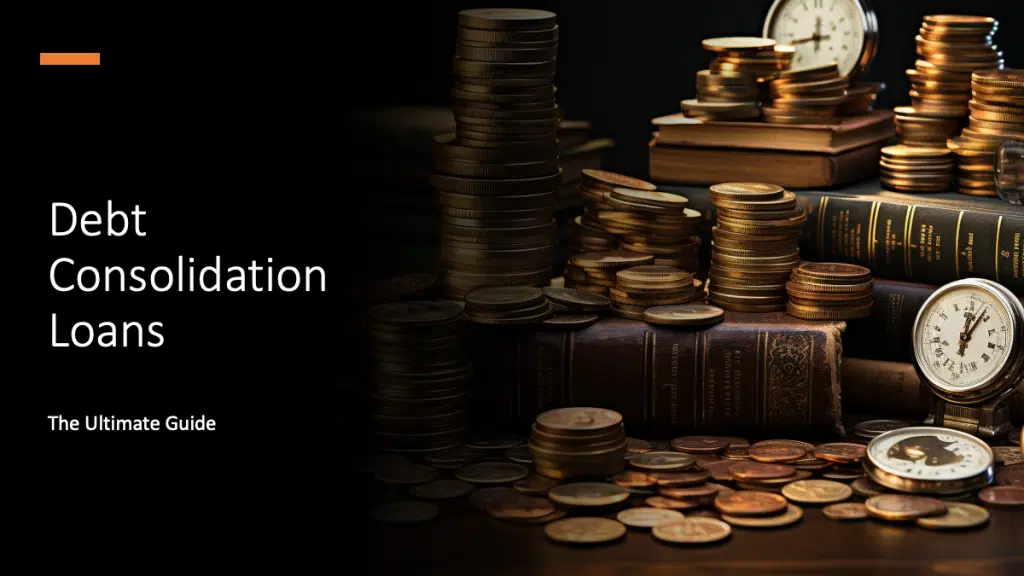65 Essential Financial Tips to Elevate Your Day-to-Day Money Management
Managing money efficiently has become more crucial than ever in today’s fast-paced world. While abundant information is available, it’s essential to have clear, actionable financial tips that can guide you toward sustainable financial health. Whether you’re a young professional just starting or someone looking to revamp their finances, our compilation of 65 essential financial tips is a comprehensive roadmap. Discover strategies to help you save, invest, budget, and grow your wealth in ways you might never have considered before.
Top Priority (Foundational Financial Health)

Navigating the complexities of personal finance begins with a solid foundation. Before delving into the intricacies of investments, tax strategies, or passive income streams, one must ensure robust foundational financial health. These top-priority guidelines are the foundation for all other financial strategies. Let’s explore each of these core principles in detail.
Set a Budget
A budget is your financial roadmap. It gives you a clear picture of where your money comes from and where it goes, allowing you to make informed decisions. Without a budget, you’re navigating your finances blindly. Regularly reviewing and adjusting your budget ensures you live within your means and are prepared for future expenses.
Establish Needs Versus Wants
Understanding the difference between needs and wants is pivotal. Needs are essentials like housing, food, and utilities, while wants are extras like vacations or luxury items. By prioritizing needs and being judicious with wants, you can avoid unnecessary debts and save for future financial goals.
Create a Financial Calendar
Much like a personal calendar that reminds you of appointments, a financial calendar tracks important financial dates, such as bill payments or tax deadlines. This tool helps you stay organized, avoid late fees, and never miss a crucial financial commitment.
Track Your Net Worth
Your net worth—the total value of your assets minus your liabilities—offers a snapshot of your financial health. Regularly calculating your net worth provides a clear picture of your financial progress and can be a motivator to reduce debts and increase savings.
Allocate at Least 20% of Your Income Toward Financial Priorities
Before spending on luxuries or daily needs, set aside at least 20% of your income for financial goals. This can include debt repayment, savings, or investments. By making this a priority, you’re ensuring a brighter financial future.
Start an Emergency Fund
Life is unpredictable. An emergency fund is a financial buffer against unforeseen expenses, be it medical emergencies or unexpected car repairs. Knowing you’re covered during challenging times without resorting to debt brings peace of mind.
Save for Retirement Now
Time is a valuable ally when it comes to compound interest. Starting your retirement savings early can mean the difference between a comfortable retirement and financial stress in your golden years. Even small, regular contributions can grow substantially over time.
Pay Off Your Debt
Debt can be a significant hindrance to achieving financial freedom. High-interest debts, like credit card balances, can quickly snowball if not addressed. Prioritize paying off debts to free up more money for savings and reduce the stress of owing money.
Educate Yourself About Personal Finance
Knowledge is power. The more you know about personal finance, the better equipped you are to make sound financial decisions. Whether it’s through books, courses, or online resources, continuous learning can transform your financial trajectory.
Set Specific Financial Goals
Vague intentions rarely lead to action. Setting specific, measurable, achievable, relevant, and time-bound (SMART) financial goals gives you a clear direction and motivation to stay on track. Whether buying a home, traveling, or retiring early, clear goals make the journey purposeful and achievable.
Medium Priority (Day-to-Day Financial Efficiency)

Once you’ve established a sturdy financial foundation, the next step is to optimize your day-to-day financial activities. This ensures that you’re stable and efficiently growing and maintaining your resources. The following tips focus on enhancing your daily financial habits, streamlining processes, and maximizing the value you get from every dollar.
Consider an all-cash diet
Using only cash can be an eye-opening experience. It forces you to physically see and feel the money leaving your hands, fostering a deeper appreciation for its value. This method can curtail impulse spending and be an effective way to adhere to a strict budget.
Make a weekly “money date”
Dedicate time each week to review your finances. This “money date” is an opportunity to track your spending, review your budget, and adjust if necessary. Regular check-ins ensure you stay on track and catch potential issues early.
Automate transfers to your savings account
Automation ensures consistency. By setting up automatic transfers, you ensure you’re consistently saving some of your income without manual intervention, making it easier to stick to your savings goals.
Prep for grocery shopping
Planning meals and creating a shopping list can prevent impulse buys and save money. Shopping with a list ensures you buy only what you need, reducing waste and unnecessary expenses.
Cancel unused subscriptions
Regularly review and cancel any unused or rarely-used subscriptions. These can add up over time, and eliminating them can result in significant yearly savings.
Draft a financial vision board
Visualizing your goals can be motivating. A financial vision board, filled with images and notes about what you’re striving for, can be a daily reminder of why you’re saving, investing, and working towards financial freedom.
Automate your deposits into your investment account
Much like savings, consistently investing can amplify your wealth. Automating this process ensures you regularly take advantage of the market, harnessing the power of dollar-cost averaging.
Live below your means
While it’s tempting to elevate your lifestyle as your income grows, maintaining a modest lifestyle can accelerate your savings and investment goals. By consistently living below your means, you ensure financial stability and resilience.
Track your spending
Knowing where every dollar goes is empowering. By tracking your spending, you gain insights into your habits, making it easier to identify areas for improvement or reduction.
Don’t connect your savings and checking accounts
Keeping these accounts separate makes it more challenging to transfer money from savings for non-essential spending impulsively. This added barrier protects your savings from being easily accessed and spent.
Cook and eat at home more often
Eating out frequently can be a significant drain on your budget. Cooking at home is more cost-effective and often healthier, giving you better value for your money.
Use coupons and discounts
Before purchasing, look for coupons, discounts, or cash-back offers. These small savings, when accumulated, can make a noticeable difference in your yearly spending.
Check your interest rate
Regularly check interest rates. Whether for savings, loans, or credit cards. Ensuring you have a competitive rate on savings can earn you more while minimizing interest on debts can save you money.
Buy generic products
Often, generic or store-brand products offer the same quality as name brands but at a fraction of the price. Opting for these can result in significant savings without compromising on quality.
Shop with a cash-back credit card
If you’re disciplined with credit card spending, using a cash-back card can earn you money for purchases you’d make anyway. Ensure you pay off the balance monthly to avoid interest.
Minimize restaurant spending
While treating yourself occasionally is lovely, frequent dining out can be costly. Opt for special occasions and explore more affordable or home-cooked options for everyday meals.
Count your coins and bills
Small changes can add up. Regularly emptying your pockets or purse and depositing this money into a savings jar or account can accumulate a sizable amount over time.
Set up autopay for recurring bills
This ensures you never miss a payment, helping you avoid late fees and potential damage to your credit score.
Not paying interest
Aim to pay off balances in full to avoid interest. Whether it’s credit card balances or loans, interest can significantly inflate your debt.
Keep bills and receipts organized
A system for your financial paperwork simplifies tax time, helps track warranties, and ensures you’re aware of all your financial obligations.
High Priority (Advanced Financial Strategies)

As you grow in your financial journey, you must adopt more sophisticated strategies to accelerate wealth accumulation and safeguard your assets. These advanced financial tips are paramount for those who’ve mastered the basics and are ready to elevate their financial game. From investment philosophies to leveraging technology, these strategies can propel you into a brighter financial future.
Invest in yourself
Your skills, knowledge, and health are your most significant assets. Continuous learning and personal development can open doors to higher earning potentials and more significant opportunities. Whether pursuing further education, attending workshops, or even investing in health and wellness, the ROI on investing in yourself is invaluable.
Don’t leave money sitting idle
While liquid assets are essential, letting excessive money sit in low-interest accounts can erode its value due to inflation. Explore high-yield savings accounts, short-term investments, or other avenues to ensure your money always works for you.
Put your money to work via investments and businesses
Beyond just savings, consider diversifying your portfolio with various investments – stocks, bonds, real estate, or even starting a side business. These avenues can provide additional income streams and capitalize on compound growth.
Acquire financial knowledge and skills
Staying informed about the latest financial trends, tools, and techniques is crucial. Regularly read financial news, books, and take courses. The more you know, the better decisions you’ll make, mitigating risks and maximizing returns.
Focus on the ‘signal,’ not the ‘noise’
Financial markets and economies are always buzzing with news, but not all are relevant. Learn to discern valuable information (‘signal’) from the inconsequential (‘noise’). This approach helps in making informed decisions without getting swayed by short-term disruptions.
Try the 50/30/20 rule as a simple budgeting framework
It’s straightforward: allocate 50% of your income to needs, 30% to wants, and 20% to savings and debt repayments. This balanced framework ensures you live comfortably while prioritizing savings and debt management.
Track and manage your budget through regular check-ins
Setting a budget is one thing, but regular monitoring and adjusting it makes it effective. Regularly evaluate your spending habits and make necessary adjustments, ensuring you stay on track with your financial goals.
Prioritize expenses and goals
Not all expenses or financial goals carry equal weight. Determine what’s most crucial for you – buying a home, early retirement, or funding your child’s education. By prioritizing, you can allocate resources more efficiently and achieve your most valued objectives sooner.
Use technology to help with budgeting
Numerous apps and platforms offer budgeting tools, expense tracking, and investment insights. Embracing technology can simplify financial management, offering real-time insights and making it easier to spot trends or areas of concern.
Say goodbye to debt
Debt can significantly drain your resources, particularly high-interest debts like credit cards. Prioritize paying off debts as quickly as possible. Not only does it free up money for other endeavors, but it also provides peace of mind, knowing you’re not beholden to creditors.
Good Habits & Mindset Financial Tips

Financial mastery extends beyond numbers and strategies, deeply intertwined with our habits and mindset. Cultivating the right attitudes towards spending, saving, and investing can transform one’s financial journey. Embrace these good habits and thought patterns to make your financial decisions more mindful, purposeful, and, ultimately, rewarding.
Adopt a spending mantra
Having a simple, memorable mantra can guide your spending decisions. Whether it’s “Do I really need this?” or “Quality over quantity,” having a go-to phrase can provide clarity in moments of doubt, ensuring that your spending aligns with your values.
Love yourself enough to say no to impulsive spending
Impulse purchases can quickly derail a budget. Recognize that resisting short-term temptations is a form of self-care. By avoiding these spontaneous buys, you prioritize long-term financial well-being over fleeting satisfaction.
Balance your FOMO/YOLO mindset
While living in the moment is essential, planning for the future is equally vital. Find a balance between enjoying the present (“You Only Live Once”) and preparing for what lies ahead, ensuring that fear of missing out (FOMO) doesn’t lead to financial setbacks.
Pay with cash, not credit
Using cash can make spending feel more tangible, unlike the abstract nature of swiping a card. This physical exchange can make you more mindful of your expenditures and reduce the chances of overspending.
Join loyalty programs to reap the rewards
Retailers, airlines, or credit card loyalty programs can offer significant savings and benefits. Engaging with these programs can lead to discounts, cash back, or other valuable perks that supplement your financial goals.
Small reductions in spending add up to big savings over time
It’s not always about grand gestures. Cutting back on daily coffee runs or occasionally opting for a more affordable brand can lead to considerable annual savings. Recognize the power of small, consistent financial decisions.
Allow up to 50% of your income for needs
Essentials like housing, utilities, and groceries should precede your budget. Allocating up to half your income ensures you cover these without compromising other areas of your financial life.
Leave 30% of your income for wants
While budgeting is crucial, it’s also essential to indulge occasionally. Setting aside 30% for leisure, hobbies, and other non-essentials ensures you enjoy life while staying financially responsible.
Commit 20% of your income to savings and debt repayment
Consistency is key to growing wealth. Regularly setting aside a portion of your income for savings or paying off debts ensures steady progress toward a more secure financial future.
Test out different budgeting methods
There’s no one-size-fits-all when it comes to budgeting. Whether it’s the envelope system, zero-based budgeting, or the 50/30/20 rule, experiment to find what resonates with your lifestyle and financial goals.
Leave room for surprises
Life is unpredictable. Setting aside a buffer in your budget for unexpected expenses ensures you’re prepared for life’s curveballs, be it a sudden car repair or an unplanned medical bill.
Additional Tips (Overall Financial Awareness)

Diving deep into the vast sea of personal finance can feel overwhelming. However, embracing specific, actionable steps, habits, and perspectives can streamline your financial journey. This section touches upon additional tips to foster overall financial awareness. From daily habits to broader financial perspectives, these suggestions aim to hone your monetary acumen further.
Take a daily money minute
Dedicate a minute each day to review your financial transactions. This quick check-in helps catch any discrepancies early, ensure you stay on track with your budget, and cultivate mindfulness about your spending habits.
Budget about 30% of your income for lifestyle spending
While saving is vital, so is enjoying life. Allocating a set percentage for lifestyle spending allows you to indulge in pleasures without compromising your financial health.
Read a personal finance book
Knowledge is power. Delve into personal finance books to gather insights, strategies, and stories from experts and everyday individuals alike. A single book can transform your perspective on money management.
Learn to budget
Budgeting isn’t about restriction; it’s about understanding and control. By allocating every dollar to a job for bills, savings, or fun, you gain clarity on your financial picture and direction for future decisions.
Cancel subscriptions you don’t use
Recurring expenses, like unused subscriptions, can slowly erode your finances. Periodically review and cut out any services that no longer provide value, freeing up funds for more pressing needs.
Cancel automatic subscriptions and memberships you don’t use
Like the previous point, ensure you’re not unwittingly paying for services you’ve forgotten about or no longer need. This step can result in surprising savings each month.
Start with the most important categories first
When budgeting or assessing expenses, prioritize essential categories like housing, utilities, and food. This ensures the most critical areas of your life are addressed before allocating funds elsewhere.
Distinguish between short-term savings goals and long-term savings goals
Whether you’re saving for a vacation next year or retirement decades away, clearly defining and separating these goals can aid in determining how much to save and where to invest or store your money.
Track your spending to improve your finances
Awareness is the first step to improvement. By keeping tabs on your spending patterns, you can identify areas for adjustment, ensuring your money aligns with your values and goals.
Create a realistic monthly budget
A budget should reflect your actual spending habits and needs. Start with your current expenses and income, then adjust as needed, ensuring it’s a tool that assists rather than hinders.
Build up your savings—even if it takes time
Financial security is a marathon, not a sprint. Even if you’re saving a small amount, the consistency and compound interest will, over time, lead to significant growth.
Don’t ask how to budget money – ask why you want to budget
Your financial journey should be grounded in purpose. By understanding your “why” – financial freedom, security, or specific dreams – you’ll find motivation and direction in your budgeting endeavors.
Conclusion: The Path to Financial Enlightenment
Mastering the art of personal finance is not just about crunching numbers or being frugal; it’s about cultivating a mindset that values foresight, discipline, and continuous learning. Every tip we’ve explored, from foundational strategies to daily habits, converges on a singular truth: financial well-being is within reach for those willing to take informed, consistent actions. Integrating these financial tips into your day-to-day life ensures a stable monetary present and paves the way for a prosperous future. Embrace this journey with an open mind, and remember that every step, no matter how small, brings you closer to your financial goals. Your financial future is in your hands, and with these tools and insights, it shines brightly.
References
- Here are 20 easy ways to save some money every day
- 15 Practical Budgeting Tips
- 16 Smart Financial Habits The Wealthy Follow
- 8 Financial Tips for Young Adults
- 12 ways to save money every day
- 30 Financial Tips for 30 Days of Financial Literacy Month
- 7 Practical Budgeting Tips to Help Manage Your Money
- Top 10 Financial Tips
- 7 Money Management Tips to Improve Your Finances
- 20 budgeting tips for easy money management
- 23 Best Personal Finance Tips
















